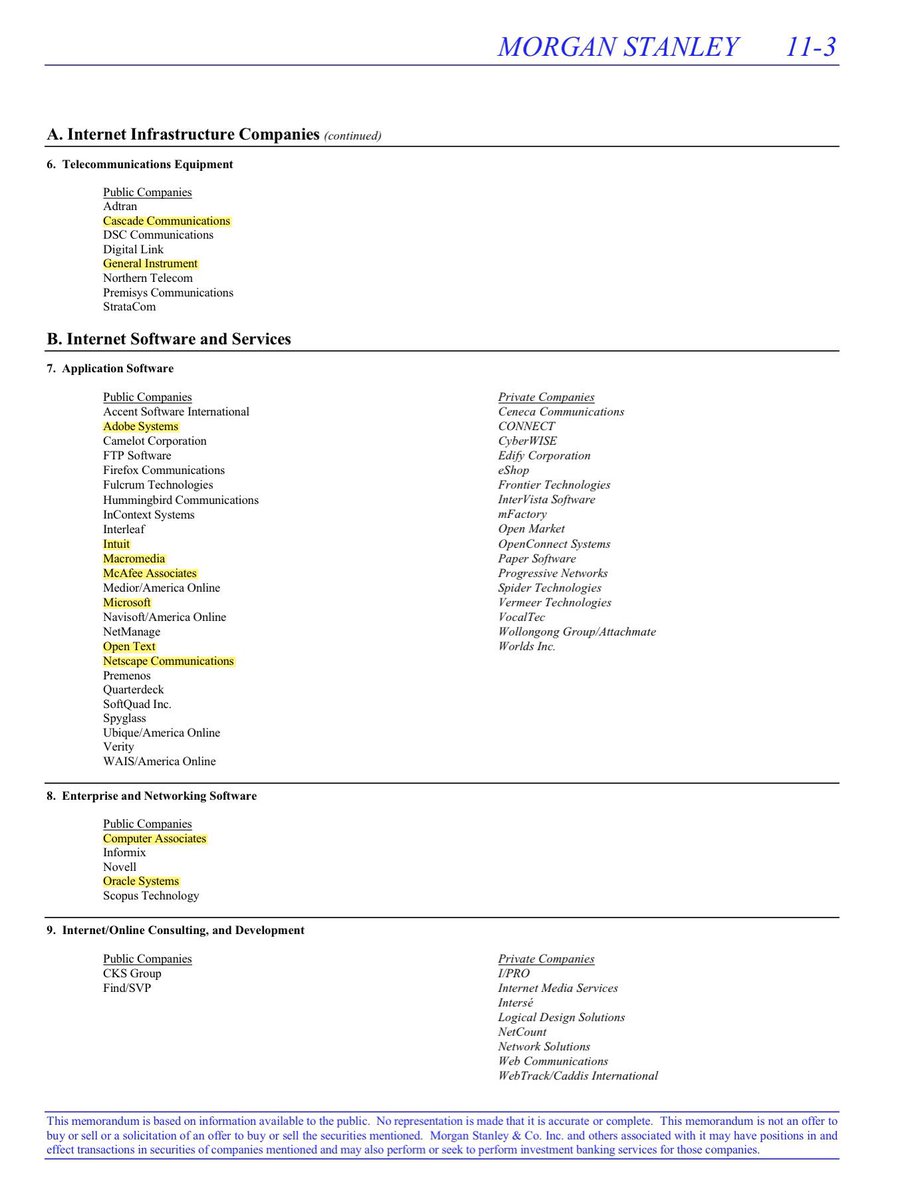
1/ In the new Infinite Loops podcast I explain why Gates and Allen saw more in the microprocessor than Intel. They wanted to solve a personal problem. Paying for computer access via a timeshare was $40 an hour in 1970s dollars. They wanted to own a computer at a low fixed price. 

2/ Bill Gates told a Financial Times writer in 1988: "Intel themselves did not understand the importance of the advance they had made in building the microprocessor. Paul Allen and I wrote to Intel to tell them what an unbelievable device they had created. That was in 1974." 

3/ "The last time Jim Manzi and I really talked at length was at the PS/2 introduction in April 1987. Jim was saying to me, 'Bill your company is fully valued. And I said to him, 'Jim, you’re right.' You know it is fully valued!” Forbes, December 7, 1992
Prediction is hard.
Prediction is hard.
4/ “Eventually the price of a desk top work station won’t be much greater than the desk it sits on. And we’ll provide the software.” Electronics, September 30, 1985
“The semiconductor people are still providing us with the magic.” U S WEST magazine, Winter, 1990
“The semiconductor people are still providing us with the magic.” U S WEST magazine, Winter, 1990
5/ "Being a visionary is trivial. Being a CEO is hard. All you have to do to be a visionary is to give the old ‘MIPS to the moon’ speech — everything will be everywhere, everything will be converged. That's different from being the CEO and seeing where the profits are.” BG
6/ "When your sales slow down, its probably because of some horrible mistake you made a couple of years ago. By the time your sales go down, you’re dead, because it’s too late to do anything about it.”
"There's a few key wins that if you don’t win you’re dead — just dead!" BG
"There's a few key wins that if you don’t win you’re dead — just dead!" BG
7/ In the podcast I explain why I have these quotes: "Nobody has a guaranteed position in this business. We’ve done some good work, but all of these products become obsolete so fast and the structure of the business as it broadens out is going to be different.” Forbes, Dec. 1992
8/ Positive feedback applies to people's success not just products.
"Once one thing gets ahead, then everybody works on stuff for that and because people do that, then it gets ahead more.” New York Times, August 25, 1991
Success feeds back on itself, particularly early success
"Once one thing gets ahead, then everybody works on stuff for that and because people do that, then it gets ahead more.” New York Times, August 25, 1991
Success feeds back on itself, particularly early success
9/ If you want to hear me tell some stories, the new podcast and a transcript are here: infiniteloopspodcast.com/tren-griffin-w…
I have thousands of stories to tell and at least one hundred of them are worth hearing. Maybe more. I enjoy it at least. So I've got that going for me, which is nice.
I have thousands of stories to tell and at least one hundred of them are worth hearing. Maybe more. I enjoy it at least. So I've got that going for me, which is nice.
• • •
Missing some Tweet in this thread? You can try to
force a refresh












